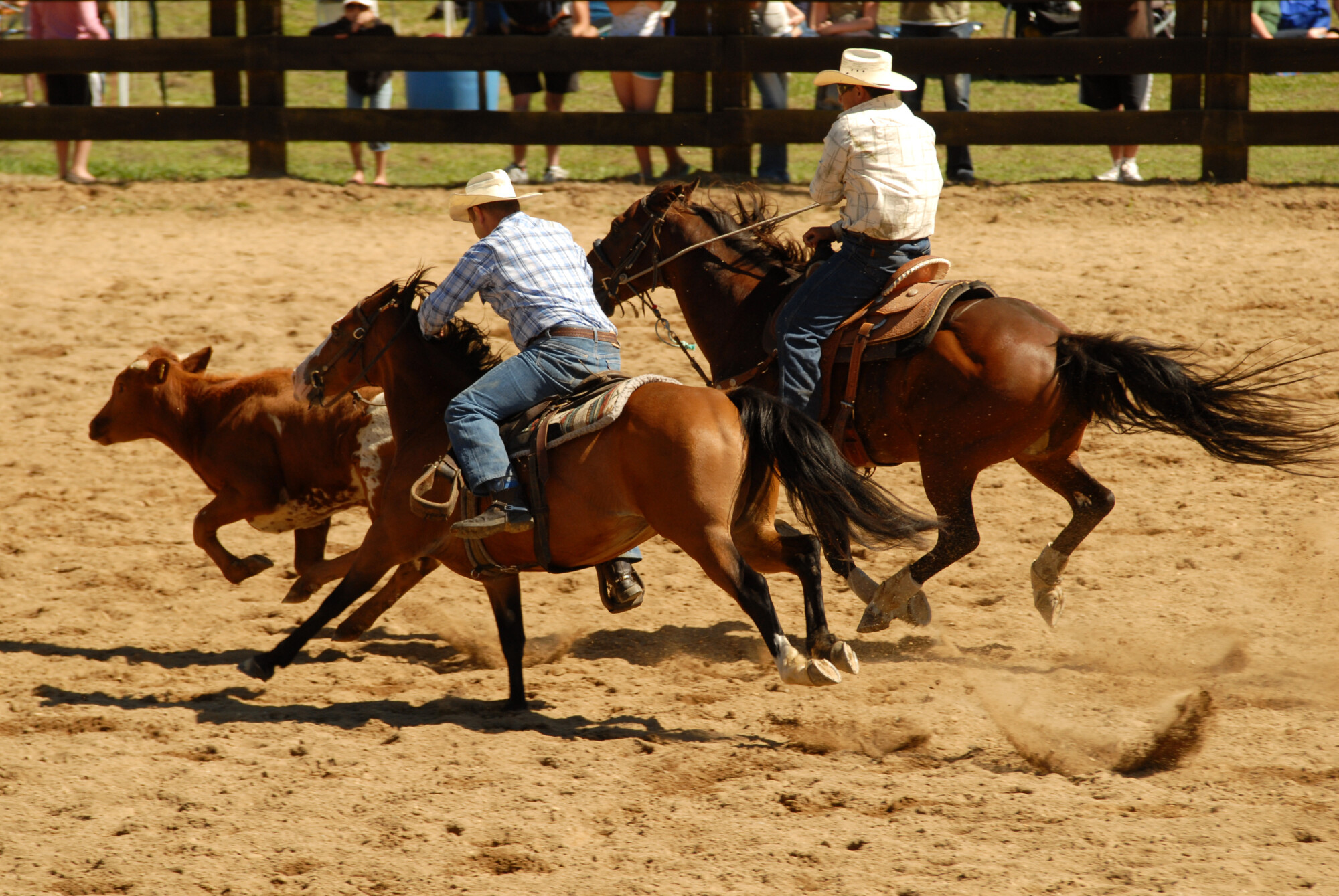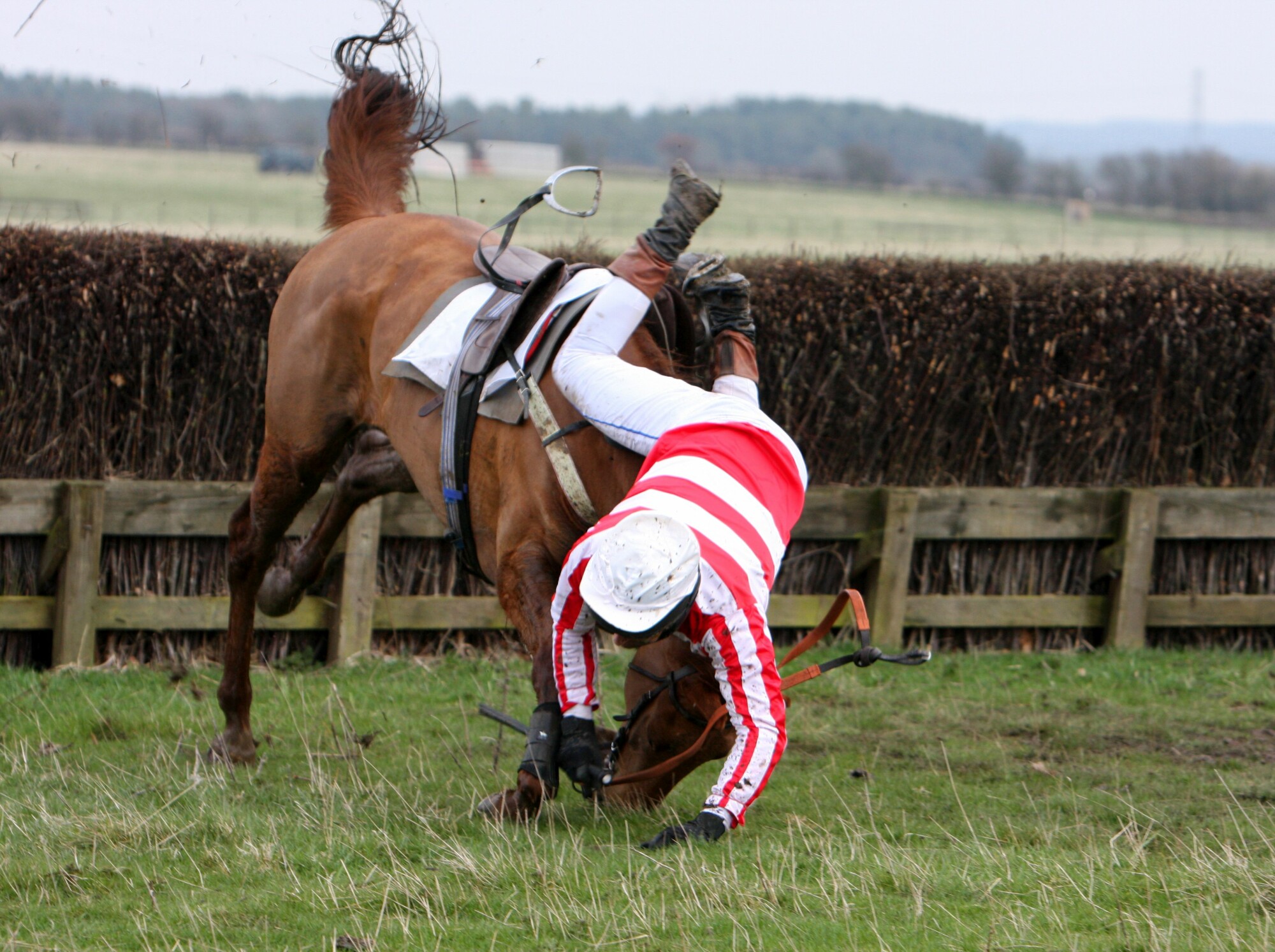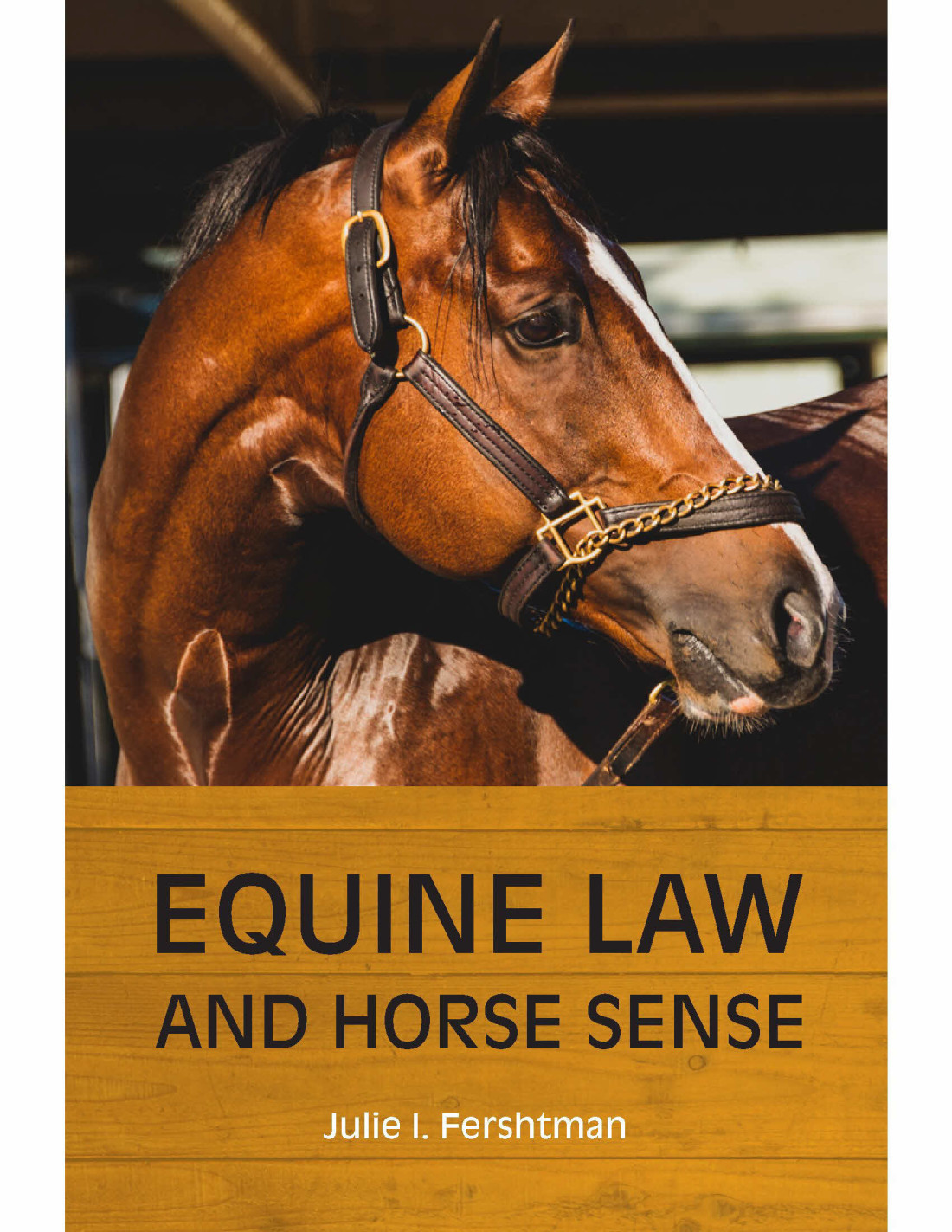
Equine Law Blog
 Courts nationwide have grappled with the meaning of equine activity liability laws – especially their exceptions. Exceptions in the laws are important as they could potentially allow certain lawsuits to proceed. Although all of the equine activity liability acts (referred to as “EALAs”) differ, many share common characteristics. Several include an exception for a “dangerous latent condition of the land.” This article explores how the exception has been faring in the courts.
Courts nationwide have grappled with the meaning of equine activity liability laws – especially their exceptions. Exceptions in the laws are important as they could potentially allow certain lawsuits to proceed. Although all of the equine activity liability acts (referred to as “EALAs”) differ, many share common characteristics. Several include an exception for a “dangerous latent condition of the land.” This article explores how the exception has been faring in the courts.
 Your club or association wants to organize a horse show or clinic. These events, your group believes, will boost publicity, increase membership, and generate extra money. Usually the event is a success, leaving happy memories and satisfied participants. But sometimes, things can go wrong, such as:
Your club or association wants to organize a horse show or clinic. These events, your group believes, will boost publicity, increase membership, and generate extra money. Usually the event is a success, leaving happy memories and satisfied participants. But sometimes, things can go wrong, such as:
 48 states across the country have some form of an Equine Activity Liability Act (as of May 2021). Are people in the two states without such a law – California and Maryland – worse off? If two recent California cases are any indication, courts have shown a willingness to dismiss lawsuits involving people who died in horse-related activities, even without an equine activity liability act.
48 states across the country have some form of an Equine Activity Liability Act (as of May 2021). Are people in the two states without such a law – California and Maryland – worse off? If two recent California cases are any indication, courts have shown a willingness to dismiss lawsuits involving people who died in horse-related activities, even without an equine activity liability act.
 For decades, this author has written articles on the importance of getting equine-related agreements in writing. Some of the articles even shared common characteristics of effective contracts. Still, people in the horse industry continue doing business with nothing in writing, and disputes have occurred. This article explores what can potentially happen when verbal contract disputes become the subject of a legal battle.
For decades, this author has written articles on the importance of getting equine-related agreements in writing. Some of the articles even shared common characteristics of effective contracts. Still, people in the horse industry continue doing business with nothing in writing, and disputes have occurred. This article explores what can potentially happen when verbal contract disputes become the subject of a legal battle.
 This year, I was invited to speak at the American Youth Horse Council’s Virtual Symposium on the topic of “Unique Equine Liability Risks Involving Minors - What They Are and How to Protect Yourself.” This article summarizes my remarks.
This year, I was invited to speak at the American Youth Horse Council’s Virtual Symposium on the topic of “Unique Equine Liability Risks Involving Minors - What They Are and How to Protect Yourself.” This article summarizes my remarks.
Children and horses have a strong bond. Many of us developed our passion for horses when we were young children. Those who provide horse-related activities for children, such as riding instructors and camps, face unique risks because the law looks at children differently than adults.
 Foster Swift shareholder Julie I. Fershtman’s latest book, Equine Law and Horse Sense, has just been published by the American Bar Association (ABA).
Foster Swift shareholder Julie I. Fershtman’s latest book, Equine Law and Horse Sense, has just been published by the American Bar Association (ABA).
Currently, all states except for California and Maryland have some form of an equine activity liability act (“EALA”). Since the first EALA was enacted 30 years ago, courts have evaluated numerous cases involving these laws. In two recent cases, lawsuits that had been brought by people injured in horse-related activities were dismissed.
Horse owners are often dog owners. While horse owners may concern themselves with liabilities associated with horse ownership, they may lose sight of liabilities associated with their dogs. Dog bites can cause serious injuries, and litigation can follow.
Because some horse breeds are known to be predisposed to certain genetic conditions, mare owners typically scrutinize the risks before making breeding decisions. They evaluate stallions’ histories, offspring, conformation, health and pedigrees. As a 2016 Texas case showed, mare owners should also pay attention to the language in the breeding contracts they sign.
Nationwide, 47 states now have some form of an equine activity liability act (“EALA”). All of these laws differ, but most share common characteristics. EALAs often provide that “equine activity sponsors,” “equine professionals,” or “another person” are not liable if the “participant” sustained injury, death, or damage as a result of an “inherent risk of equine activity.” Georgia’s EALA, for example, defines “inherent risk” this way:
The words “half lease” seem unique to the horse industry. In law school, this lawyer never heard the phrase mentioned, and the authoritative legal dictionary, Black’s Law Dictionary, nowhere mentions it. Yet, people in the horse industry, with greater frequency, are entering into arrangements they call “half leases” through which one or more persons (the “lessees”) pay a horse owner (the “lessor”) for shared use of the horse. “Half lease” arrangements might seem budget-friendly, but without careful planning, they could be quite the opposite as disputes could follow.
Your club or association wants to organize a horse show. Or, your club wants to hold a clinic and invite a nationally known trainer to offer tips on training, showing, or horsemanship skills to members and guests, many who bring horses to the event. These events, your group believes, will boost publicity, increase membership, and generate extra money.
Things can go wrong, however. Is your club prepared for these:
When an equine activity liability statute is amended, are the amendments retroactive to the date when the law was initially passed? Or, do the amendments take effect going forward?
If an equine-related accident occurs before an equine activity liability act becomes the law, can the court apply the (after-enacted) law?
Courts around the country have examined these issues. This article addresses two cases.
Memorial Day weekend was a time for parades. Horses in parades have brought injuries and litigation.
Several years ago, an injured Iowa parade spectator filed a lawsuit after being struck by a pony in the parade. The parade spectator wanted to cross the street while the parade was in progress. Before an organized group of horses approached, she perceived a “break” in the parade and then crossed the street while carrying a lawn chair. The chair spooked one of the ponies in the parade. This pony, at the time, was being ridden by two children, ages 4 and 8, but nobody led the pony on foot. When the pony spooked, it bolted, threw the children, and knocked over the spectator.
In equine-related lawsuits, parties often hire expert witnesses to testify at trial. Experts are sometimes called upon to testify about a party's compliance (or lack of compliance) with a standard of care. The role of an expert witness is to assist the judge and jury in understanding key issues in a case. For example, an expert can be asked to testify if the equipment used by a riding instructor was properly selected for the horse and rider.
For trial lawyers handling Equine Law cases, among the most difficult tasks is selecting the right expert witness for a case. In a well-known equine case from Minnesota, the Court refused to allow a party's proposed equine expert witness to testify. The Minnesota Supreme Court ultimately upheld that judge's ruling and affirmed the striking of that expert from testifying.
Rider rents a horse from a stable, instructor, or dude ranch. Rider falls and is hurt, allegedly due to saddle that slipped. Rider sues, alleging that the provider improperly secured the saddle on the horse.
What happens next? Who is liable? Over the years, numerous lawsuits have been brought based on equestrian injuries blamed on saddles that were allegedly defective or improperly tightened.
Can a disabled teenager keep a miniature horse in an urban location as a “service horse”? That was the issue in an interesting lawsuit that was decided last year by a federal appellate court in Ohio.
At issue was a Blue Ash, Ohio city ordinance banning horses from residential property. Allegedly acting in response to complaints from neighbors about unsanitary conditions and offensive odors created by the horse, the city wanted residents (Anderson and her daughter) to remove a miniature horse from their property, and it brought criminal charges against Anderson. She and her daughter fought back.
Spooking Horse Was an “Inherent Risk” and No “Willful or Wanton” Conduct Found
As of Aug. 1, 2015, 47 states – all but California, Maryland, and New York – have passed some form of an Equine Activity Liability Act ("EALA"). These laws sometimes share common characteristics, but all of them differ. Most follow a pattern that prevents an “equine activity sponsor,” “equine professional,” or possibly others from being sued if a “participant” who “engages in an equine activity” suffers injury, death or damage from an “inherent risk.” The laws typically include a list of exceptions.
Does a horse bucking in reaction to a lawn mower qualify as an “inherent risk” for which the EALA might protect a horse owner from liability?
Private, Backyard Facility Could Qualify as an “Equine Activity Sponsor” Under Equine Activity Liability Law
As of July 20, 2015, 47 states– all but California, Maryland, and New York – have passed some form of an Equine Activity Liability Act ("EALA"). These laws sometimes share common characteristics, but all of them differ. Most follow a pattern that prevents an “equine activity sponsor,” “equine professional,” or possibly others from being sued if a “participant” who “engages in an equine activity” suffers injury, death or damage from an “inherent risk.” For example, Tennessee’s EALA, T. C. A. § 44-20-103, states:
Except as provided in § 44-20-104, an equine activity sponsor, an equine professional, or any other person, which shall include a corporation or partnership, shall not be liable for an injury to or the death of a participant resulting from the inherent risks of equine activities. Except as provided in § 44-20-104, no participant or participant's representative shall make any claim against, maintain an action against, or recover from an equine activity sponsor, an equine professional, or any other person for injury, loss, damage, or death of the participant resulting from any of the inherent risks of equine activities.
The laws typically include a list of exceptions, many of which this blog has explained.
A California farrier (horseshoer) with 45 years of experience was hired to trim a horse’s hooves. While working in an outdoor corral, the horse knocked him down, and his head hit a rock. He died from his injuries, and his estate sued the horse owner who also owned the property. The trial court dismissed the case, and the California Court of Appeals agreed.
As this blog has reported in the past, courts nationwide have disagreed as to whether parents can legally release away personal injury claims of their minor children.
In a decision issued earlier this year, a California appellate court found that a horse trainer/riding instructor's release of liability, signed by a mother as well as her teenage daughter, was enforceable. Accordingly, the court held that a lawsuit against the trainer (who was also referred to as a "coach") arising from the teenager's death, was properly dismissed.
For years, we’ve received calls like these:
- “I ‘free leased’ my horse to a friend, but now she refuses to return my horse.”
- “A neighbor let me ‘rescue’ her horse because she could no longer take care of him. Now I want to sell him, but my neighbor says I can’t do this.”
In each situation, the parties had no written contract, and nobody was ready or able to undergo an intense and costly legal battle that might follow.
Equine transactions are ripe for a legal dispute when the parties have no written contract and a completely different understanding of the same transaction. Without a contract or agreement explaining the transaction and what the parties’ intended, these types of legal matters can become lawsuits in which the outcome is never predictable. What is a virtual guarantee is that in a court of law the dispute will never be quick, easy, or cheap to litigate.
Imagine owning a boarding stable that had a barn fire, causing loss to some of the horses. Imagine later being sued from a disgruntled boarder whose horse perished in the fire. This happened to a Michigan stable, and the stable faced an aggressive legal challenge from the boarder. In the end, the trial court dismissed the case and the Michigan Court of Appeals affirmed the dismissal in 2014. Why did the stable win? The liability release in its boarding contract played an important part of this result.
At Foster Swift, we've successfully defended equine-related defamation litigation. Today we're sharing an interesting case from Massachusetts that arose from a "tweet" of only a few words.
The Case
The plaintiff, Feld, owned a Thoroughbred named "Munition." She allegedly sold this horse through a Craigslist ad to a dealer who allegedly promised to place "Munition" with a "loving family" that would allow the plaintiff to visit him. Unfortunately, it was strongly suspected that the dealer instead shipped him to an auction where he may thereafter been slaughtered. Some media reports and Internet chatter followed the story of "Munition's" disappearance.
The defendant, Conway, was a Thoroughbred Bloodstock Agent who became involved in a heated Internet discussion regarding "Munition's" disappearance; she posted on Twitter: “[Plaintiff] -- you are f***ing crazy!” Because of this single "tweet," the plaintiff sued for defamation, claiming that the "tweet" defamed her reputation and attacked her sanity. In response, the defendant asked the Court to dismiss the case on the basis that the "tweet" was not defamatory but instead was mere opinion and hyperbole. The court agreed.
You just received papers of a lawsuit that was filed against you. The party suing you demands substantial compensation. What do you do next? Knowing the right answer can be tremendously important—it can also save you a substantial amount of money. Taking the wrong action, in the worst case scenario, could potentially result in a sizeable judgment issued against you that cannot be overturned.
